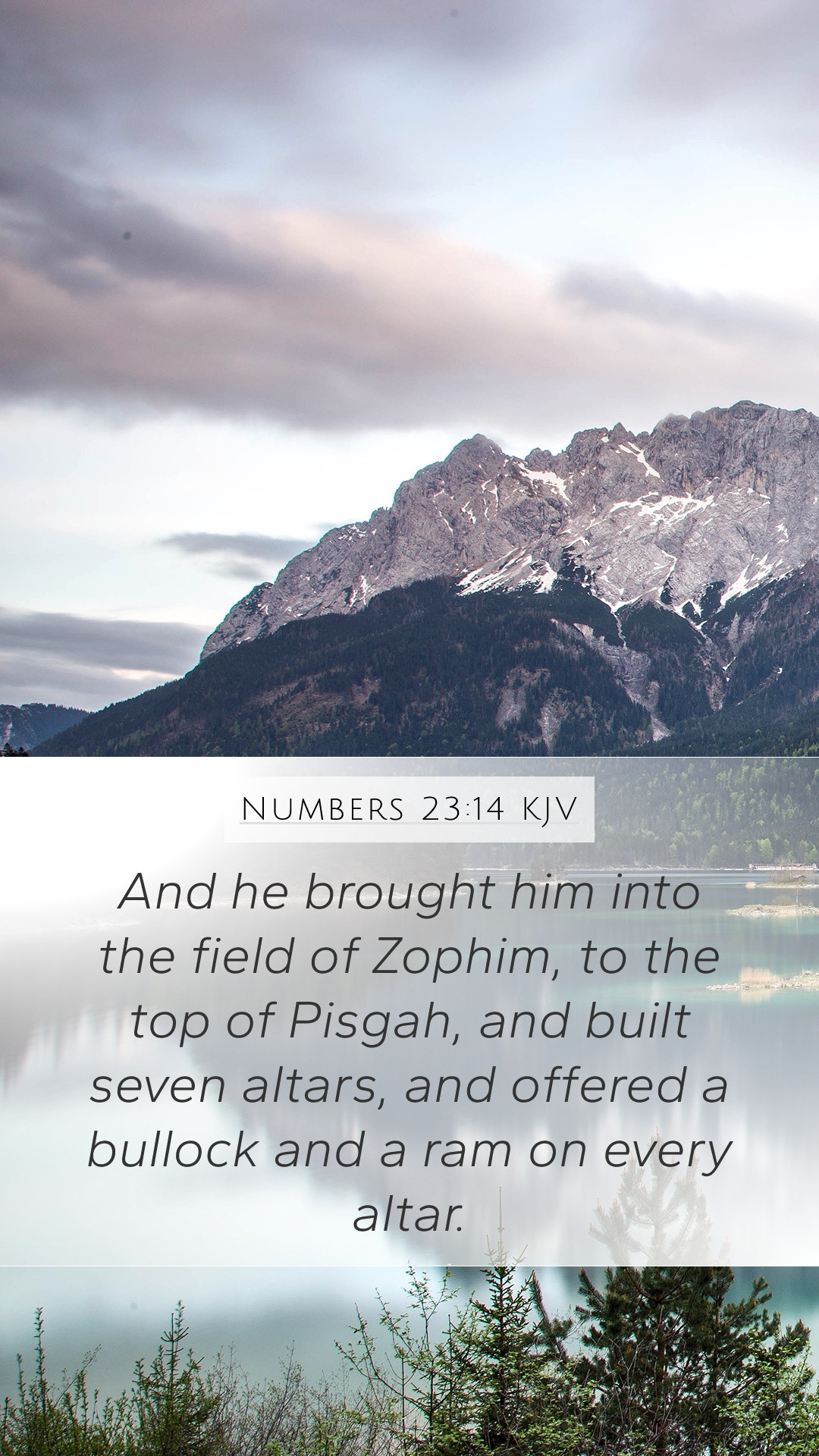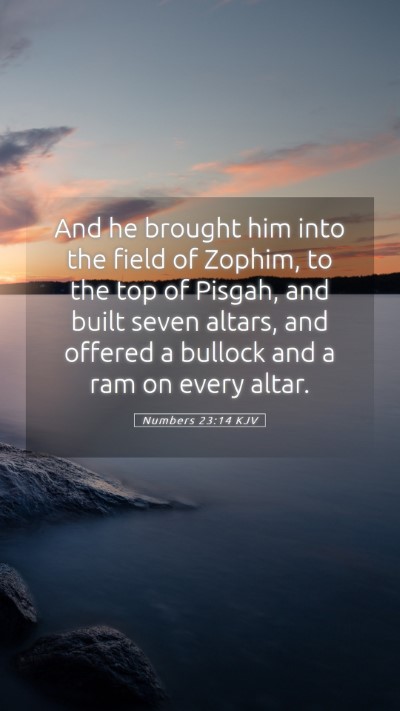Bible Verse Meaning: Numbers 23:14
Verse: Numbers 23:14 - "And he brought him to the field of Zophim, to the top of Pisgah, and built seven altars, and offered a bullock and a ram on the altar."
Summary of Insights
Numbers 23:14 describes an important moment in the narrative of Israel’s journey through the wilderness, focusing on Balaam’s encounter with Balak, the king of Moab. This verse underscores several significant themes and concepts that can enhance our understanding of Scripture.
Contextual Overview
Context is crucial in understanding this Bible verse. The backdrop involves the Israelites nearing the Promised Land, and Balak, fearful of their might, seeks to hire Balaam to curse them. The location—top of Pisgah—signifies a vantage point from which Balaam could observe the encampment of Israel.
Commentary Insights
- Matthew Henry: Henry emphasizes the importance of location in this verse, indicating that Pisgah provides an elevated perspective, symbolizing a higher spiritual insight. He sees Balaam’s actions as a mix of devotion and manipulation, hinting at the complexities of human motives in worship.
- Albert Barnes: Barnes focuses on the construction of the altars, aligning it with ancient Near Eastern practices of sacrifice to invoke divine favor or intervention. He interprets the act of offering significant sacrifices as Balaam attempting to secure a prophetic response from God, despite his questionable intentions.
- Adam Clarke: Clarke highlights the significance of the number seven, which often symbolizes completeness in Scripture. He argues that this should be seen as Balaam's desire to completely consult the divine, albeit within a morally ambiguous framework.
Theological Themes
This verse encapsulates several theological themes:
- Divine Sovereignty: The narrative stresses God's ultimate control over whom He blesses or curses, contrasting human efforts to manipulate divine will.
- Worship Practices: The construction and use of altars reinforce the importance of reverent worship in ancient Israelite and surrounding cultures.
- Human Motivation: Balaam’s actions prompt reflection on the purity of intentions behind sacrifices and prayers.
Applying the Verse Today
For modern readers, Numbers 23:14 invites reflection on how one approaches God in worship:
- Are the motives pure when seeking God’s favor?
- How do we interpret our own desires through prayer and worship practices?
- What can we learn about the balance between divine sovereignty and human agency?
Biblical Cross References
- Numbers 23:8 - Balaam’s insight on blessings.
- Exodus 20:24 - Instructions on building altars.
- Deuteronomy 23:4 - Moab’s historical confrontation with Israel.
Conclusion
Numbers 23:14 serves as a rich source for biblical analysis, inviting deeper inquiry into the practices of worship and the complexities of human motivations within our relationship with God. By examining the insights from various commentaries, readers can cultivate a more profound understanding of this verse and its implications for faith and daily living.
Further Study and Exploration
For those involved in Bible study groups or online Bible study sessions, using this verse as a springboard for discussion can lead to engaging conversations about worship, intention, and divine will. Consider developing Bible study guides or Bible study lessons that delve into the complexities of interpreting both Old Testament narratives and their applications in today’s context.


